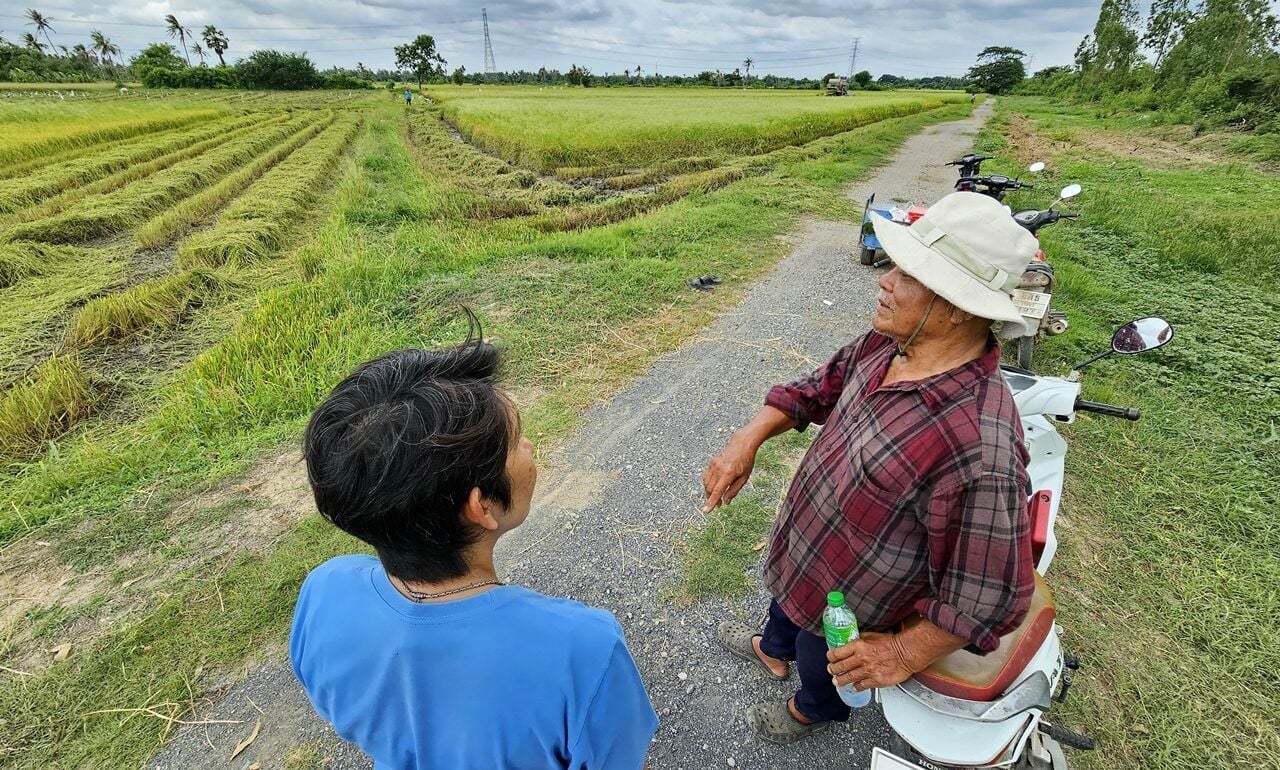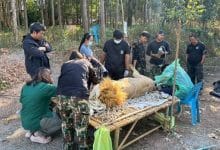Ratchaburi farmers back new fertiliser project to cut costs

Farmers in Ratchaburi are optimistic about the Half-and-Half Fertiliser project, designed to alleviate financial strain and reduce production costs for rice farmers.
The project, approved by the Ministry of Agriculture and Cooperatives, aims to support farmers planting rice in the 2024 to 2025 production year by providing 50 kilogrammes of fertiliser per rai, with a cap of 20 rai per household (up to 1,000 kilogrammes per household).
The National Rice Policy and Management Committee (NRPMC) is set to review the project tomorrow, June 13, before it is presented to the Cabinet. This initiative seeks to increase opportunities and relieve the financial burdens faced by rice farmers.
Reporters visited the area to gather opinions from local farmers, including 73 year old farmer, Thamma Sorsaat from Ban Pong district, Ratchaburi, who has been farming for 60 years. Thamma currently grows jasmine rice on a farm spanning nine rai and has harvested over 10 tonnes in the 2023 to 2024 crop year.
However, this year’s off-season crop yielded only 40% of the expected output due to El Niño conditions. Despite the buying price reaching 10,800 to 11,000 baht per tonne, Thamma noted that costs for soil improvement, seeds, labour, pesticides, fuel, harvesting, and fertiliser left little profit.
Thamma supports the project, believing it will significantly reduce production costs and provide additional funds for fertiliser to enhance rice yield. However, he expressed concerns about the adequacy and equitable distribution of fertiliser to all farmers and the potential increase in fertiliser prices due to higher demand.
He emphasised the importance of a well-planned government strategy to genuinely reduce production costs for farmers.
The Half-and-Half Fertiliser project represents a crucial step in supporting Thailand’s rice farmers, aiming to ease their financial burden and ensure sustainable agricultural practices.
The NRPMC’s approval and subsequent Cabinet endorsement will be pivotal in determining the project’s success and its impact on the agricultural sector, reported KhaoSod.
Latest Thailand News
Follow The Thaiger on Google News:


























